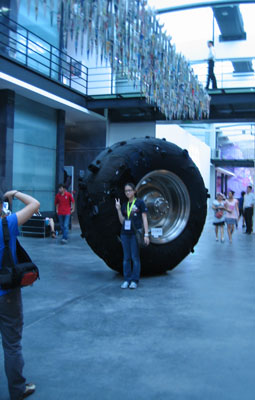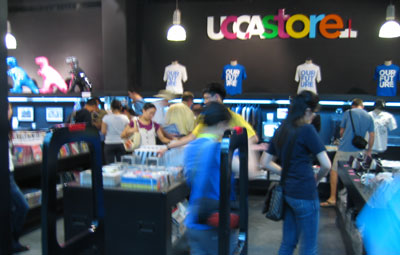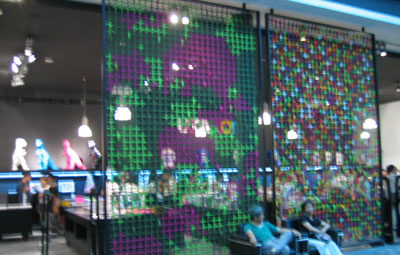The administration of the 798 Art zone, known as Beijing's "Greenwich Village", will cooperate with artistic institutions and individuals to sustain art in the community, said Chen Yongli, head of 798's Administration and Development Office.
Chen was speaking in a symposium held in Ullens Center for Contemporary Art (UCCA) for the launch of a bilingual book titled Beijing 798 Now: Changing Arts, Architecture, and Society in China. The center is an independent not-for-profit art venue in 798.
|

|
|
Ullens Center for Contemporary Art (UCCA) in 798 Art Zone |
The symposium attracted architect Cheng Lei, independent art critic Zhu Qi and artist Shu Yang to discuss 798's commercialized and internationalized arts.
"The 798 zone should create an atmosphere for artists to work independently; art is not all about commercial success. Artists need policies to support their work in 798," said Shu.
Zhu expressed a slightly different view, "Art cannot exist without commerce, but there should not be too much commerce," he said. According to him, the arts need foundations to support them so that they can be freed from the demands of market forces.
|

|
| Ullens Center for Contemporary Art (UCCA) in 798 Art Zone |
Cheng believes 798 as an art information center should become the barometer of contemporary arts. He sees the core value of 798 expressed in its art galleries. "Chinese artists in 798 should work shoulder to shoulder with international artists."
Zhu agreed with Cheng. He said 798 should be a center for contemporary arts from throughout the world. In the last 15 years, people have lost their understanding of the art of Chinese characters, which is becoming increasingly difficult to promote.
As part of Dashanzi in Beijing's Chaoyang District, 798 diverse art galleries and centers have been created from renovated factories.
|

|
|
Ullens Center for Contemporary Art (UCCA) in 798 Art Zone |
(China.org.cn by Wu Jin, August 25, 2008)